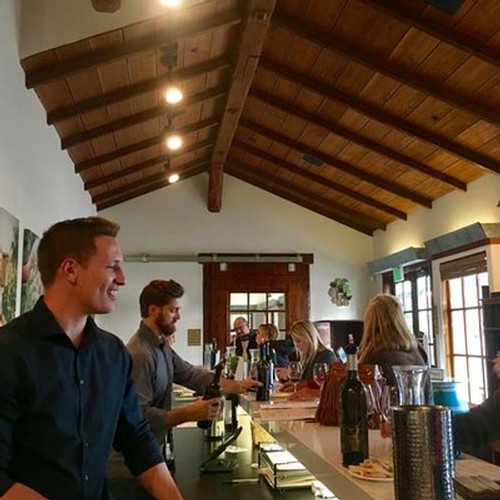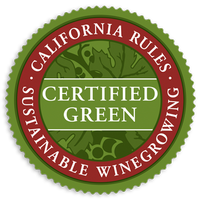For Media & Trade
What are the RULES?
The “RULES” are a set of over 150 farming standard practices which help farmers manage their vineyards sustainably. They are divided into six categories: ecosystem management, water management, soil management, pest management, business management, and human resources. For a full copy of the standards, click HERE.
How is certified sustainable different from certified organic or biodynamic?
Certified organic and biodynamic farming follow a set of practices related to the environment. Certified sustainable farming includes practices related to the environment, the people, and the business. For a recent article highlighting the differences in simple terms, click HERE.
What types of wines carry the LODI RULES seal?
There are LODI RULES wines made from over 50 different grape varieties, so whether your passion is red, white, or rosé, you can find a delicious LODI RULES wine to match your style. Looking for something specific for your wine program? Call the friendly staff of the Lodi Wine Visitor Center at 209-365-0621 for a recommendation. Note: not all wines are distributed in every state or country.
Where is Lodi, California?
Lodi is about two hours east of San Francisco and 45 minutes south of Sacramento, in the San Joaquin Valley. Thinking about a visit? Check out lodiwine.com for more information. Lodi is the proud winner of the 2015 Wine Enthusiast WINE REGION OF THE YEAR Award. The LODI RULES program originated in and is headquartered in Lodi but has expanded world-wide.
How can we tour a LODI RULES vineyard and meet with LODI RULES farmers and winemakers?
For those interested in digging deeper into sustainable winegrowing, we offer LODI RULES vineyard tours and wine tastings. Contact stephanie@lodiwine.com or 209-367-4727 for more information or to schedule a visit.
How can I engage with LODI RULES on social media?
Check out #lodirules and follow these awesome instagrammers: @langetwins, @boglevineyards, @cottafamilyfarms, @mohrfryranches, @michaeldavidwinery, @bokischvineyards, @acquiescewinery, @oakfarmvineyards, @peltierwinery, @scholiumwines, @purplecorduroy, @victor_vineyards, @pinotpix, @kgvm_llc, @st.amant_wine, @jandmfarmslodi_, @mcmanisfamilyvineyards, @klinkerbrick, @pressleyvineyards, @dineen_vineyards, @harneylanewinery, @berryhillfamilyvineyards, and @lodiwine.
What are the current LODI RULES program statistics?
Currently there are over 75,000 acres certified in the LODI RULES program. These vineyards are located in all across California, in Washington State, and in Israel. It’s hard to know exactly how many farmers are involved with the program but we estimate it to be at least 300 growers, plus the program is financially supported by the 750 farmers of the Lodi Winegrape Commission. Between 2010 and 2024 alone, wineries paid over $14 million to farmers as bonuses for LODI RULES certified grapes. These bonuses greatly help to offset the costs incurred by farmers to participate in the program.
LODI RULES is third-party accredited, certified, and audited. What does that mean and why does that matter?
The founders of LODI RULES steadfastly hold the program to a high standard of scientific rigor and excellence in both ethics and sustainability. There is a LODI RULES Committee who discusses every word in a standard farming practice for months before submitting that standard to Protected Harvest, the third-party accreditor and certifier. The farmers of Lodi never want to be accused of green washing, which means just placing a green or eco-friendly label on something without meaning. Instead, they chose an organization called Protected Harvest – whose Board is made up of leading environmentalists and some of the most intelligent pesticide risk scientists in the world – to review the LODI RULES program on a continuous basis. Protected Harvest also manages the certification paperwork so that the farmers are not in any way certifying themselves. Finally, there is a true third-party auditing company who is paid by the certification fees collected by Protected Harvest because the LODI RULES growers believe it is unethical for farmers to pay the auditor directly. The auditors thus feel no obligation to pass a grower who is not meeting the high rigor of verification set forth in the program.
How does LODI RULES compare with other sustainable winegrowing programs?
Every program has the same goal – to protect the environment and the people in an economically feasible manner. There are, however, some distinctions. These distinctions are best described in a research article available HERE.
I have a restaurant and we pour LODI RULES wines. How can I simply and quickly educate customers and staff on the program?
Wonderful! Please let us know the name of your restaurant so we can visit it when we are in your area – stephanie@lodiwine.com. We highly recommend using a small logo next to the sustainable wines on your wine list, and then at the bottom of the wine list having the logo with the words “certified sustainable.” Servers can describe the wines as being produced in a responsible way that protects the environment and the farmworkers.


